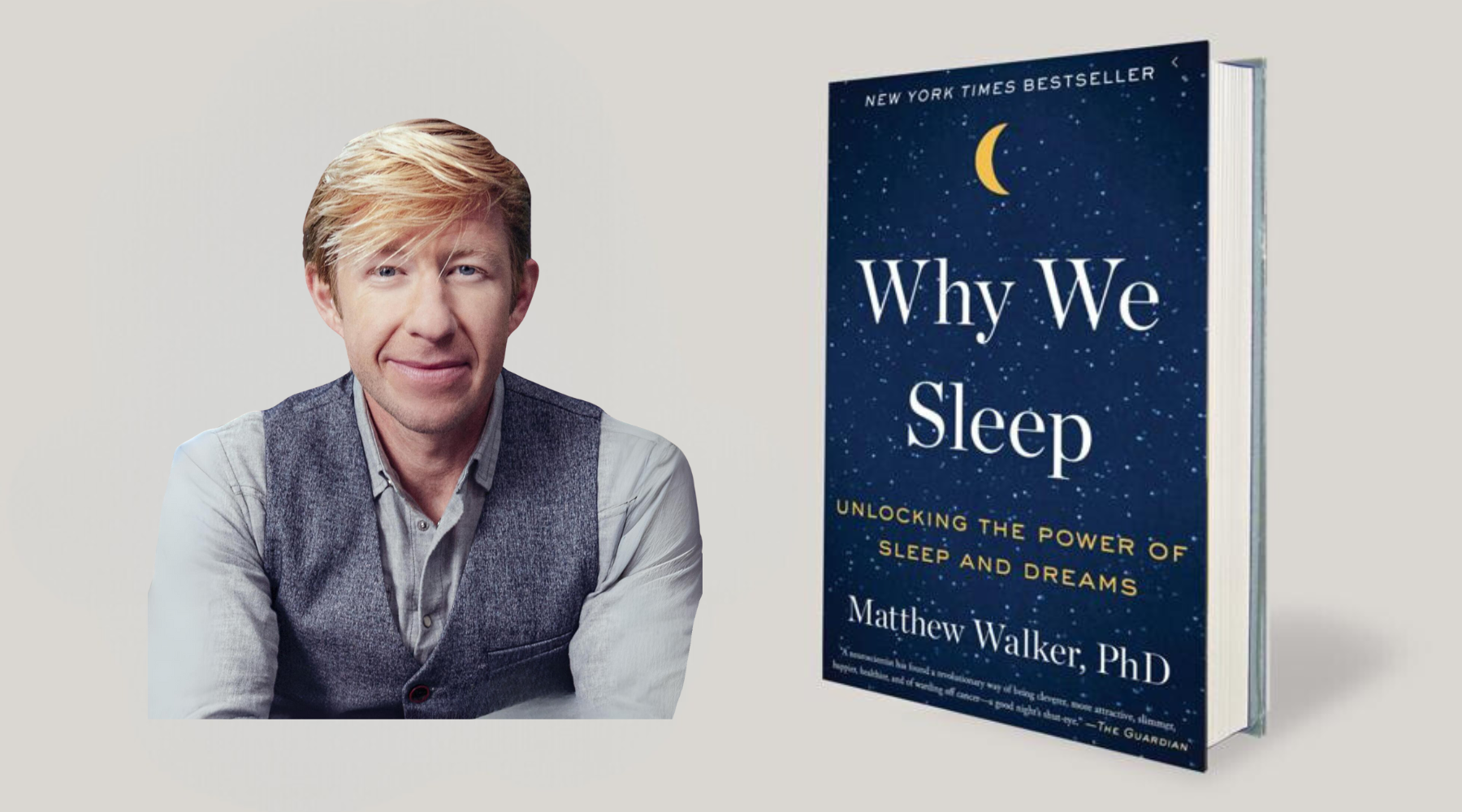Understanding Sleep Cycles: A Guide to Waking Up Refreshed

Table of Contents
- Introduction
- The Basics of Sleep Cycles
- The Four Stages of Sleep
- The Role of Each Sleep Stage
- Factors Affecting Sleep Cycles
- How Sleep Cycles Affect Waking Up
- The 90-Minute Rule
- Circadian Rhythm and Sleep Cycles
- Temperature Regulation and Sleep Cycles
- Sleep Cycles and Memory Consolidation
- Strategies for Optimizing Your Sleep Cycles
- The Impact of Modern Lifestyle on Sleep Cycles
- Common Sleep Cycle Myths Debunked
- When to Seek Professional Help
- Conclusion
- Additional Resources
Introduction
We've all experienced those mornings when we wake up feeling groggy and unrested, despite getting a full night's sleep. The secret to waking up refreshed lies not just in the quantity of sleep, but in understanding and optimizing our sleep cycles. In this comprehensive guide, we'll delve into the science of sleep cycles and how they affect your ability to wake up feeling rejuvenated.
The Basics of Sleep Cycles
A sleep cycle is a progression through various stages of sleep that our bodies naturally undergo throughout the night. Each cycle typically lasts about 90-110 minutes and repeats several times during a night's sleep. Understanding these cycles is crucial for optimizing your sleep and improving your overall well-being.
Sleep cycles consist of two main types of sleep: Non-Rapid Eye Movement (NREM) sleep and Rapid Eye Movement (REM) sleep. NREM sleep is further divided into three stages, while REM sleep constitutes the fourth and final stage of a complete cycle.
The Four Stages of Sleep
Stage 1: Light Sleep
This is the transitional phase between wakefulness and sleep. It's characterized by slow eye movements and a slight dip in body temperature. During this brief stage, you can be easily awakened.
Stage 2: Deeper Sleep
In this stage, your heart rate slows, and body temperature continues to drop. Brain waves become slower with occasional bursts of rapid waves called sleep spindles. This stage prepares your body for deep sleep.
Stage 3: Deep Sleep (Slow Wave Sleep)
This is the restorative stage of sleep. Your brain produces slow delta waves, blood pressure drops, and breathing slows. It's during this stage that your body repairs tissues, builds bone and muscle, and strengthens the immune system.
Stage 4: REM Sleep
REM sleep is characterized by rapid eye movements, increased brain activity, and dreaming. This stage is crucial for cognitive functions like memory consolidation, learning, and creativity.
The Role of Each Sleep Stage
Each stage of sleep plays a vital role in your overall health and well-being. NREM sleep, particularly the deep sleep of Stage 3, is essential for physical restoration. It's during this time that your body releases growth hormones, repairs tissues, and builds bone and muscle.
REM sleep, on the other hand, is crucial for cognitive functions. It helps in consolidating memories, processing emotions, and supporting learning and problem-solving skills. The balance between NREM and REM sleep changes throughout the night, with more deep sleep occurring in the earlier cycles and more REM sleep in the later cycles.
Completing full sleep cycles is important for feeling refreshed upon waking. Interrupting a cycle, particularly during deep sleep or REM sleep, can lead to that groggy, unrested feeling, even if you've slept for a long time.
Factors Affecting Sleep Cycles
Several factors can influence your sleep cycles:
- Age: As we get older, we tend to have shorter, less consolidated sleep cycles with less deep sleep.
- Sleep Disorders: Conditions like sleep apnea or insomnia can disrupt normal sleep cycles.
- Lifestyle Factors: Diet, exercise, and stress levels can all impact the quality and duration of your sleep cycles.
- Environmental Factors: Light exposure, noise, and temperature in your sleeping environment can affect your sleep cycles.
How Sleep Cycles Affect Waking Up
Understanding how sleep cycles impact your waking state is crucial for improving your morning alertness. Sleep inertia, that groggy feeling upon waking, occurs when you're roused from deep sleep or REM sleep. Ideally, you want to wake up at the end of a sleep cycle when you're in lighter sleep stages.
To optimize your wake-up time, try to plan your sleep in 90-minute increments. For example, sleeping for 7.5 hours (five full cycles) might leave you feeling more refreshed than sleeping for 8 hours and waking mid-cycle.
The 90-Minute Rule
Sleep scientist Dr. Andrew Huberman emphasizes the importance of the 90-minute sleep cycle. This natural rhythm of our sleep architecture can be leveraged to improve sleep quality and morning alertness. By timing your sleep in 90-minute increments, you're more likely to wake up during a lighter sleep stage, feeling more refreshed.
Huberman also introduces the concept of "sleep pressure" - the biological drive for sleep that builds up during wakefulness. Understanding and managing sleep pressure can help you fall asleep more easily and maintain consistent sleep cycles.
Circadian Rhythm and Sleep Cycles
Your circadian rhythm, often referred to as your body's internal clock, plays a crucial role in regulating sleep cycles. Both Huberman and sleep expert Dr. Matthew Walker stress the importance of aligning your sleep schedule with your circadian rhythm.
Morning sunlight exposure is particularly important. It helps reset your circadian rhythm, signaling to your body that it's time to be awake and alert. Conversely, exposure to artificial light in the evening can disrupt your natural sleep-wake cycle, making it harder to fall asleep and potentially affecting the quality of your sleep cycles.
Temperature Regulation and Sleep Cycles
Dr. Huberman's research highlights the significant role of body temperature in sleep cycles. Your body temperature naturally drops as you prepare for sleep and rises again as morning approaches. Understanding and working with this natural temperature fluctuation can improve your sleep quality.
Keeping your bedroom cool (around 65°F or 18°C) can facilitate this natural temperature drop. Some people find that taking a warm bath before bed helps, as it causes a rapid cooling effect afterward, mimicking the natural pre-sleep temperature drop.
Sleep Cycles and Memory Consolidation
Dr. Walker's research emphasizes the critical role of sleep cycles in memory formation and cognitive performance. Different stages of sleep contribute to various aspects of memory consolidation. For instance, deep sleep is crucial for cementing factual information, while REM sleep helps with procedural memory and creative problem-solving.
Sleep deprivation, which disrupts normal sleep cycles, can significantly impact memory and cognitive function. Even a single night of poor sleep can affect your ability to learn and retain new information the next day.
Strategies for Optimizing Your Sleep Cycles
Armed with this knowledge, you can take steps to optimize your sleep cycles:
- Maintain a consistent sleep schedule, even on weekends.
- Create an ideal sleep environment: dark, quiet, and cool.
- Consider using sleep tracking technology to understand your personal sleep patterns.
- Time your sleep in 90-minute increments.
- Regulate your body temperature for better sleep.
- Get exposure to natural light, especially in the morning.
- Focus on sleep efficiency - the percentage of time in bed actually spent sleeping.
The Impact of Modern Lifestyle on Sleep Cycles
Our modern lifestyle often conflicts with our natural sleep patterns, posing significant challenges to maintaining healthy sleep cycles. Both Dr. Huberman and Dr. Walker have highlighted several factors that can disrupt our sleep:
Caffeine and Alcohol
Caffeine, with its long half-life, can interfere with your ability to fall asleep even when consumed several hours before bedtime. It primarily affects the deeper stages of sleep, reducing their duration and quality. Alcohol, while it might help you fall asleep faster, disrupts the latter half of your sleep, particularly REM sleep, leading to less restful nights.
Digital Devices
The blue light emitted by smartphones, tablets, and computers can suppress melatonin production, the hormone responsible for regulating our sleep-wake cycle. Moreover, the engaging nature of these devices can keep our minds stimulated, making it harder to transition into sleep.
24/7 Society
The demands of a constantly active society often lead to irregular sleep schedules, shift work, and late-night activities. These factors can misalign our sleep cycles with our natural circadian rhythms, resulting in poor sleep quality and daytime fatigue.
Strategies for Protecting Sleep Cycles in a 24/7 World
- Limit caffeine intake, especially in the afternoon and evening.
- If consuming alcohol, do so in moderation and not close to bedtime.
- Implement a "digital sunset" - turn off screens at least an hour before bed.
- Use blue light filtering apps or glasses if late-night device use is unavoidable.
- Try to maintain a consistent sleep schedule, even on weekends.
- If shift work is necessary, work with a sleep specialist to develop strategies for maintaining healthy sleep cycles.
Common Sleep Cycle Myths Debunked
Misconceptions about sleep can lead to habits that disrupt our sleep cycles. Let's address some common myths:
Myth: "Everyone needs 8 hours of sleep"
Reality: Sleep needs vary among individuals. While most adults require 7-9 hours, some may need more or less. The key is to focus on sleep quality and waking up feeling refreshed, rather than adhering strictly to a specific number of hours.
Myth: "You can catch up on sleep on weekends"
Reality: While you can pay off some sleep debt with extra sleep, chronic sleep deprivation can't be fully compensated for by sleeping in on weekends. Consistent sleep patterns are more beneficial than alternating between deprivation and excess.
Myth: "Naps ruin nighttime sleep"
Reality: Short naps (20-30 minutes) during the early afternoon can be beneficial without disrupting nighttime sleep. However, longer naps or those taken late in the day can interfere with your sleep cycles.
Myth: "You need less sleep as you get older"
Reality: Dr. Walker emphasizes that older adults need just as much sleep as younger adults. While sleep patterns may change with age, the need for quality sleep remains constant throughout adulthood.
Myth: "Your brain and body shut down during sleep"
Reality: Sleep is an active process. Your brain and body perform crucial functions during different sleep stages, including memory consolidation, tissue repair, and hormone regulation.
When to Seek Professional Help
While understanding sleep cycles can significantly improve your sleep quality, sometimes professional help is necessary. Here are some signs that it might be time to consult a sleep specialist:
Signs of Sleep Cycle Disruptions
- Consistently having trouble falling asleep or staying asleep
- Feeling excessively sleepy during the day despite getting enough sleep
- Loud snoring or gasping for air during sleep (potential signs of sleep apnea)
- Experiencing frequent, intense nightmares
- Inability to fall back asleep if you wake up during the night
Common Sleep Disorders Affecting Cycles
Several sleep disorders can disrupt your sleep cycles:
- Insomnia: Difficulty falling asleep or staying asleep
- Sleep Apnea: Breathing interruptions during sleep
- Narcolepsy: Excessive daytime sleepiness and sudden sleep attacks
- Restless Leg Syndrome: Uncomfortable sensations in the legs, often worse at night
- Circadian Rhythm Sleep Disorders: Misalignment of sleep patterns with the day-night cycle
Types of Sleep Professionals and Treatments
Sleep medicine is a specialized field with various professionals who can help diagnose and treat sleep disorders:
- Sleep Specialists: Physicians with specific training in sleep medicine
- Neurologists: Specialists in brain and nervous system disorders, some of which can affect sleep
- Psychiatrists: Can help if your sleep issues are related to mental health conditions
- Cognitive Behavioral Therapists: Offer CBT-I (Cognitive Behavioral Therapy for Insomnia), a highly effective treatment for chronic insomnia
Treatments can range from lifestyle changes and sleep hygiene improvements to cognitive behavioral therapy, medication, or devices like CPAP machines for sleep apnea. The right treatment depends on the specific sleep issue and its underlying causes.
Conclusion
Understanding your sleep cycles is a powerful tool for improving your sleep quality and overall well-being. By recognizing the stages of sleep, the factors that influence them, and how to optimize your sleep environment and habits, you can take significant steps towards waking up feeling refreshed and energized.
Remember, good sleep is not just about quantity, but quality. It's about aligning your sleep patterns with your body's natural rhythms, creating an environment conducive to restful sleep, and being mindful of the factors that can disrupt your sleep cycles.
Implementing the strategies discussed in this guide - from maintaining a consistent sleep schedule to managing your light exposure and temperature - can lead to noticeable improvements in your sleep quality. However, if you continue to struggle with sleep issues despite these efforts, don't hesitate to seek professional help.


